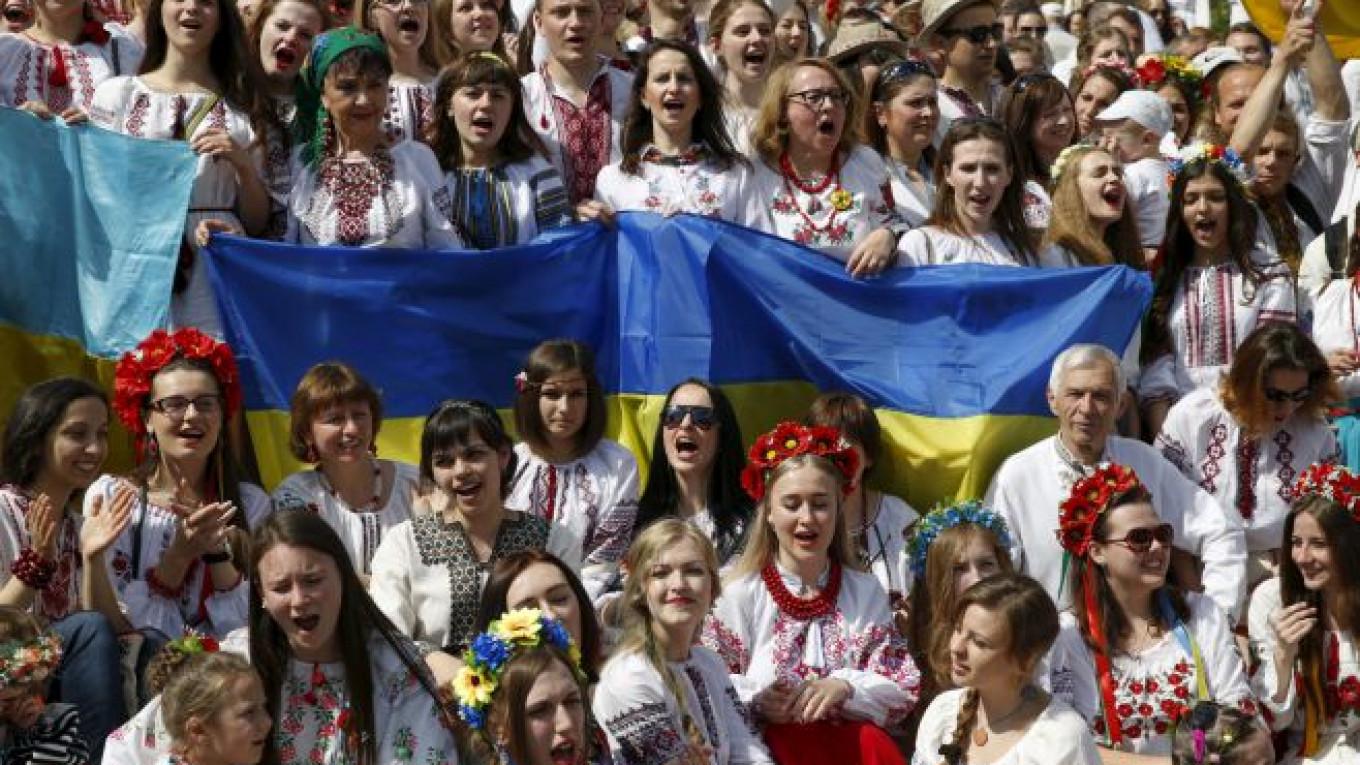The post-Maidan government in Ukraine has been entrusted with the monumental challenge of reforming the country from the ground up. Deadlines are short and the reforms demanded by international creditors are unpopular, Russian aggression in the East looms menacingly on the horizon and the West is dithering.
While most observers were focusing on the high-level negotiations between Kiev and the IMF, a silent revolution was taking place in the background. Since the Euromaidan protests, hundreds of nongovernmental organizations have sprung up to guide the country down the winding path of the post-Yanukovych era.
Where the state foundered, civil society rose up to fill the gap: militia battalions maintained order, volunteer groups distributed aid while established organizations redirected their work to assist people in the war-torn east.
One of Ukraine's largest NGOs, the International Renaissance Foundation spearheaded a campaign to pressure the transitional government of February-November 2014 to deliver on a set of urgent reforms.
Kiev obliged, and granted unprecedented powers to non-state actors. Defense, internal security and election monitoring — all were functions carried out by civil society groups. Arguably, this motley coalition of volunteers and activists, armed with nothing more than patriotism saved Ukraine from collapse.
Pitched against Russian propaganda, Ukrainians retaliated with a flurry of makeshift news sites run by volunteers, to inform and counter Moscow's media. VoxUkraine is now one of the loudest pro-reform voices in Ukraine, while new television stations such as Hromadske television and newspapers like Ukrainskaya Pravda or Novoye Vremya have quickly become household names.
The collective efforts of ordinary Ukrainians have not gone unnoticed. As part of Kiev's signing of the Association Agreement in 2014, the European Commission launched the EU-Ukraine Civil Society Platform (CSP), which will direct funding worth 355 million euros to "enhance the role of civil society in promoting and monitoring democratic reforms." The CSP also brings together 15 working groups, staffed by both officials and activists tasked with hashing out reform proposals for the Ukrainian state.
Further afield, the usual suspects have also opened their checkbooks wide: USAID, the UNDP, Soros' Open Society Foundations, all recognizing that a politically active and aware Ukrainian civil society is the best policy to keep the country's cohesion.
However, many observers have pointed out that some civil society initiatives in Ukraine have been corrupted for political gain. Even though these post-Maidan NGOs were supposed to bring reform-minded people together, some have morphed into groups with strong political undertones.
Take Ihor Kolomoisky's militia battalions: After playing a stabilizing role in the aftermath of the Maidan protests, the oligarch used the volunteer groups much like a personal army, sending men in combat fatigues to seize control of Ukrtransnafta. Kolomoisky attempted to build his own fiefdom in the country's southeast, before Ukrainian President Petro Poroshenko publicly sacked him.
Despite these teething problems, we should no longer consider Ukrainian civil society as an empty abstraction, but one of the country's most powerful vehicles of modernization.
The faceless crowds that paid with their blood to topple Yanukovych in February 2014 have proven their resilience and their vigor.
As Russian political analyst Andrei Okara noted, "If Ukrainian society demands modernization just as it demanded dignity and integration with Europe earlier, then modernization will happen regardless of holdover Ukrainian officials."
Nicholas Kaufmann is a public affairs consultant based in Brussels.
A Message from The Moscow Times:
Dear readers,
We are facing unprecedented challenges. Russia's Prosecutor General's Office has designated The Moscow Times as an "undesirable" organization, criminalizing our work and putting our staff at risk of prosecution. This follows our earlier unjust labeling as a "foreign agent."
These actions are direct attempts to silence independent journalism in Russia. The authorities claim our work "discredits the decisions of the Russian leadership." We see things differently: we strive to provide accurate, unbiased reporting on Russia.
We, the journalists of The Moscow Times, refuse to be silenced. But to continue our work, we need your help.
Your support, no matter how small, makes a world of difference. If you can, please support us monthly starting from just $2. It's quick to set up, and every contribution makes a significant impact.
By supporting The Moscow Times, you're defending open, independent journalism in the face of repression. Thank you for standing with us.
Remind me later.


